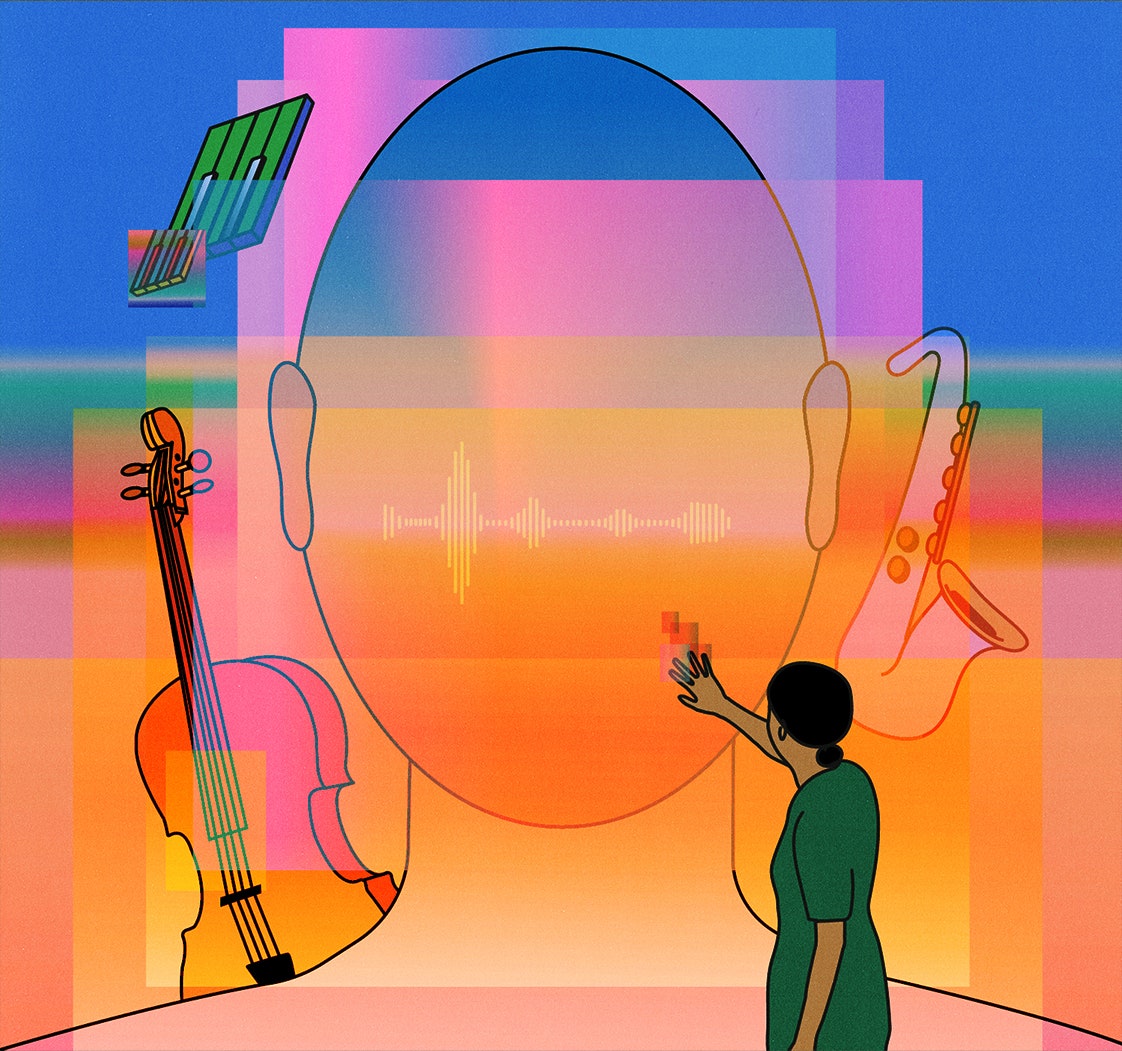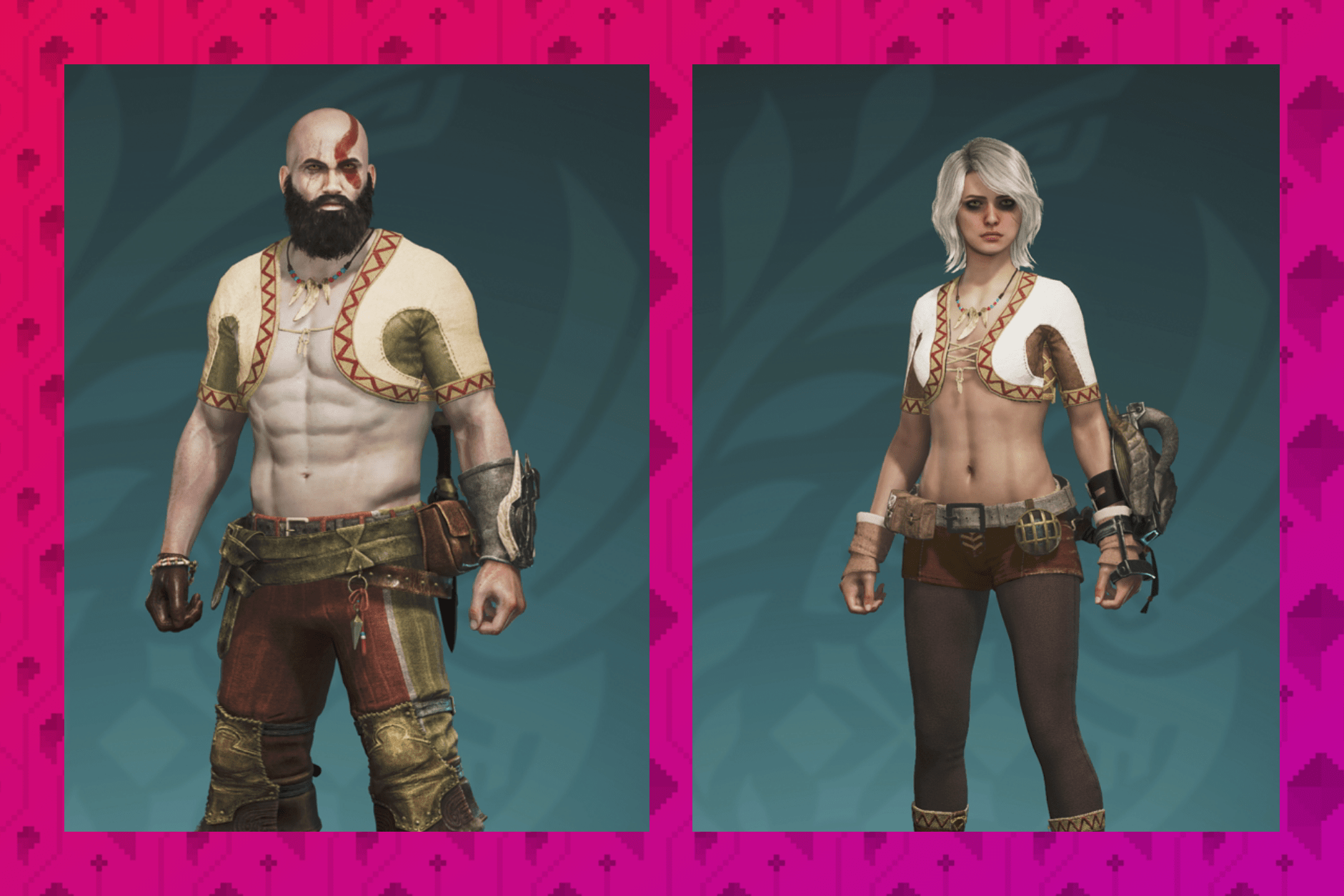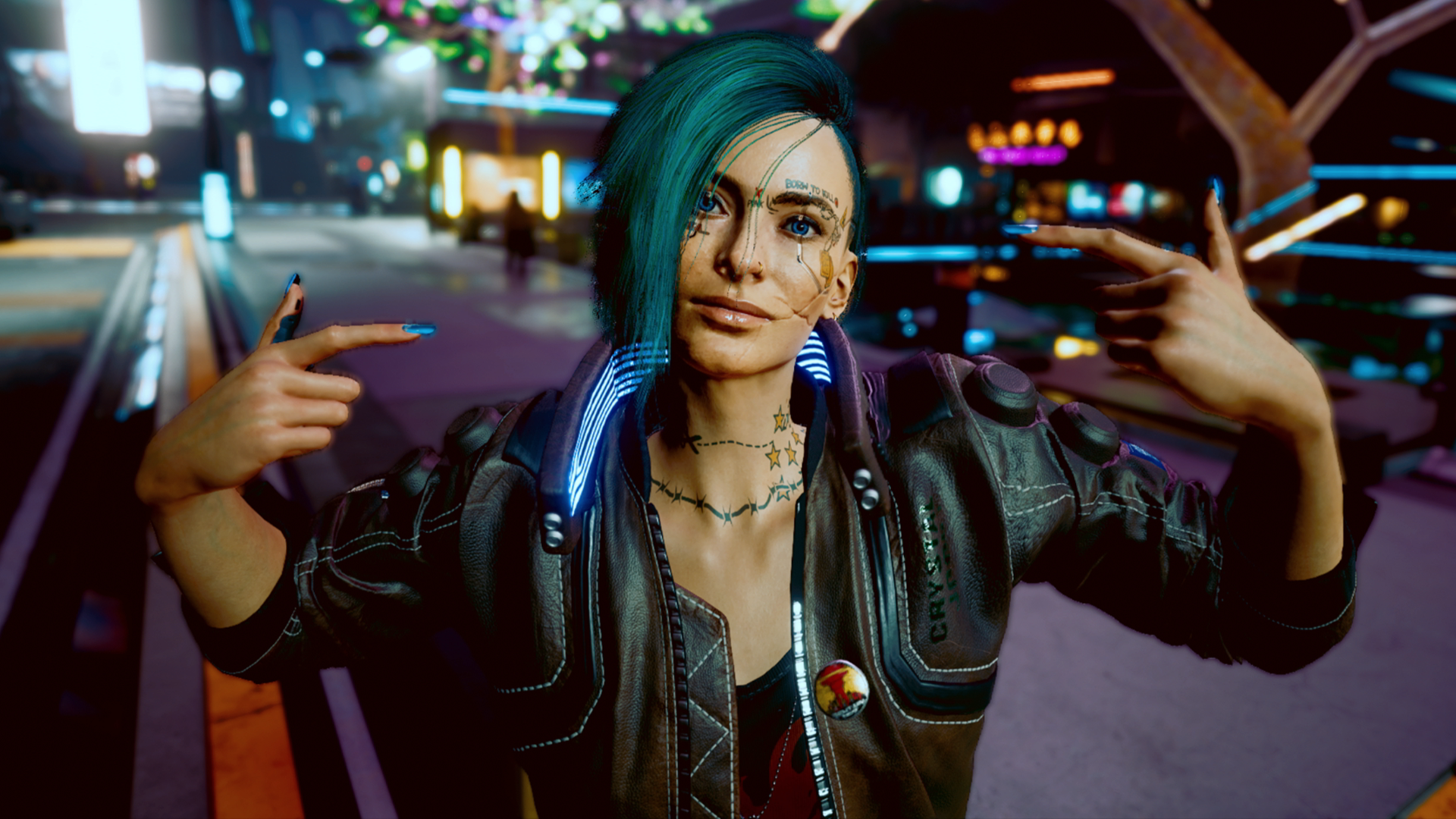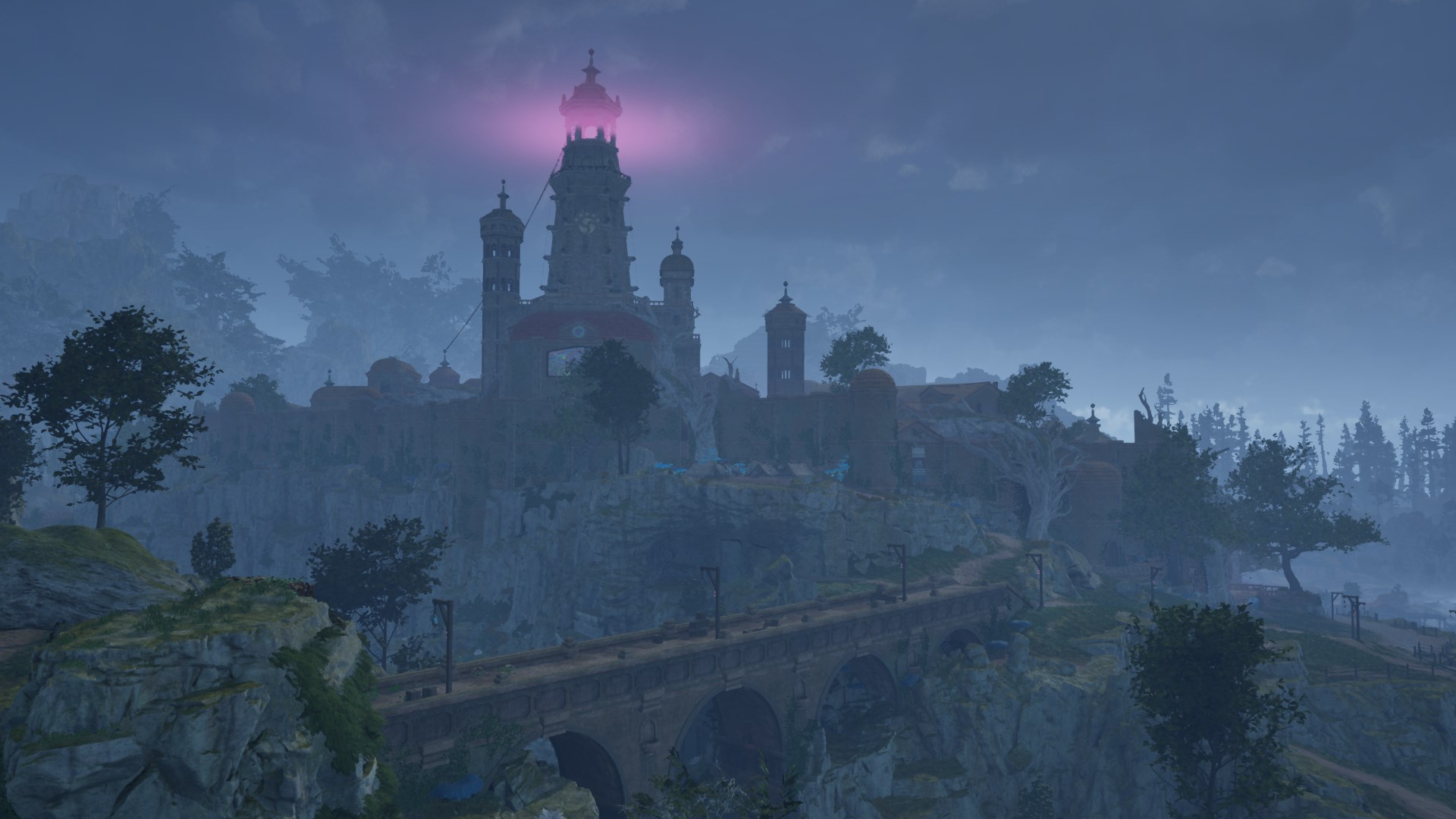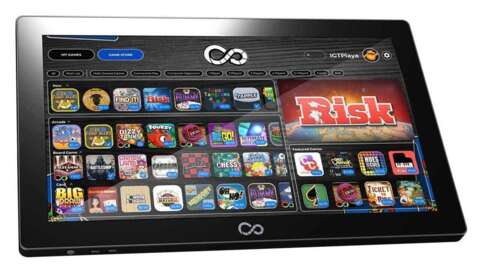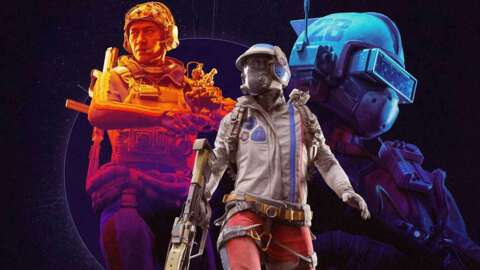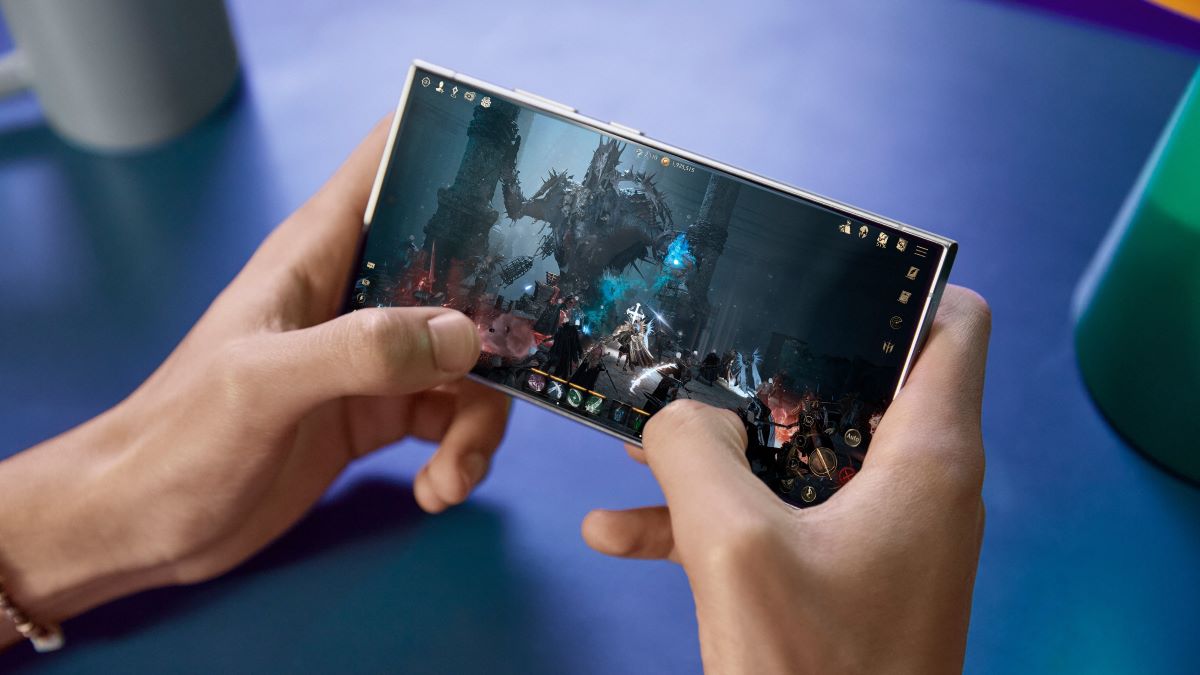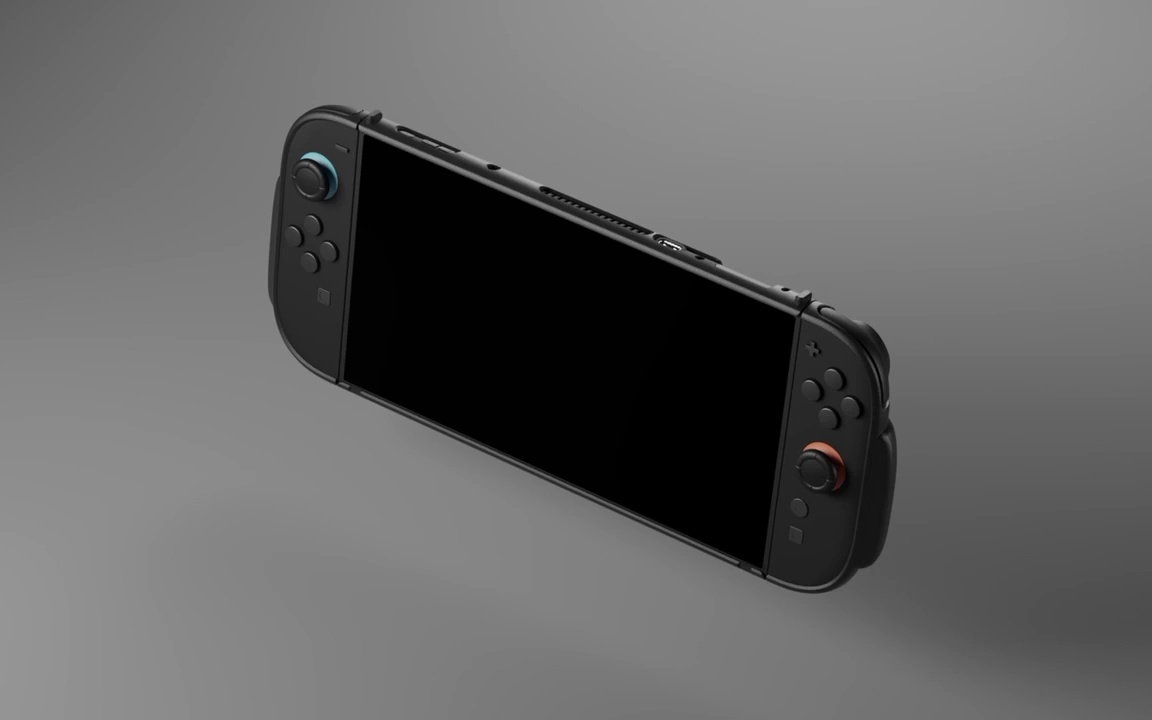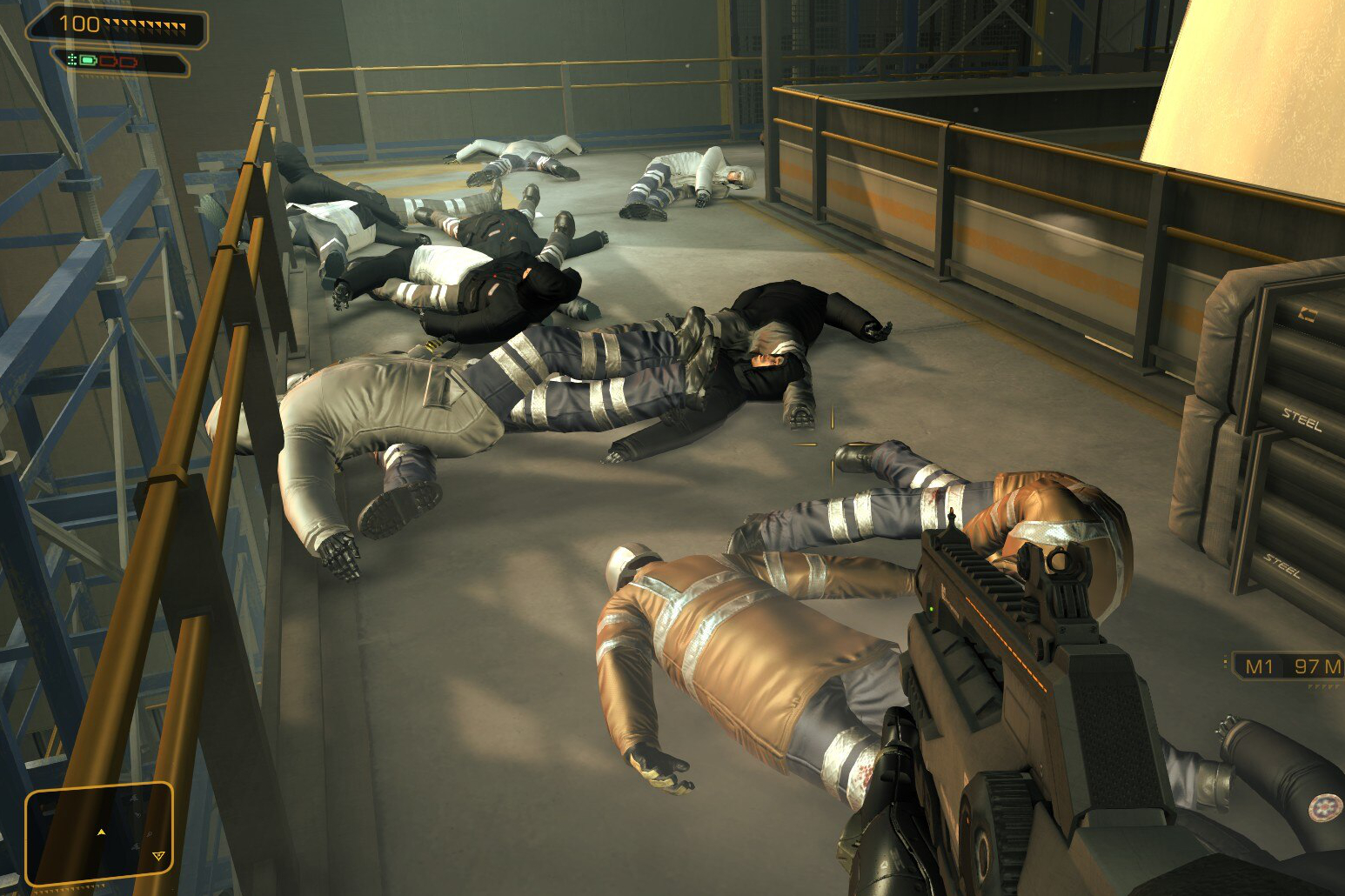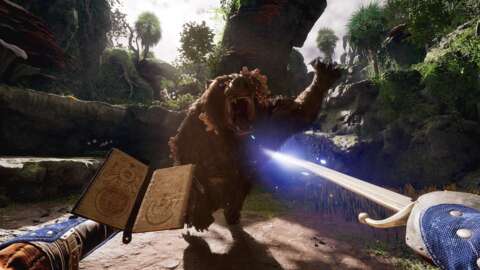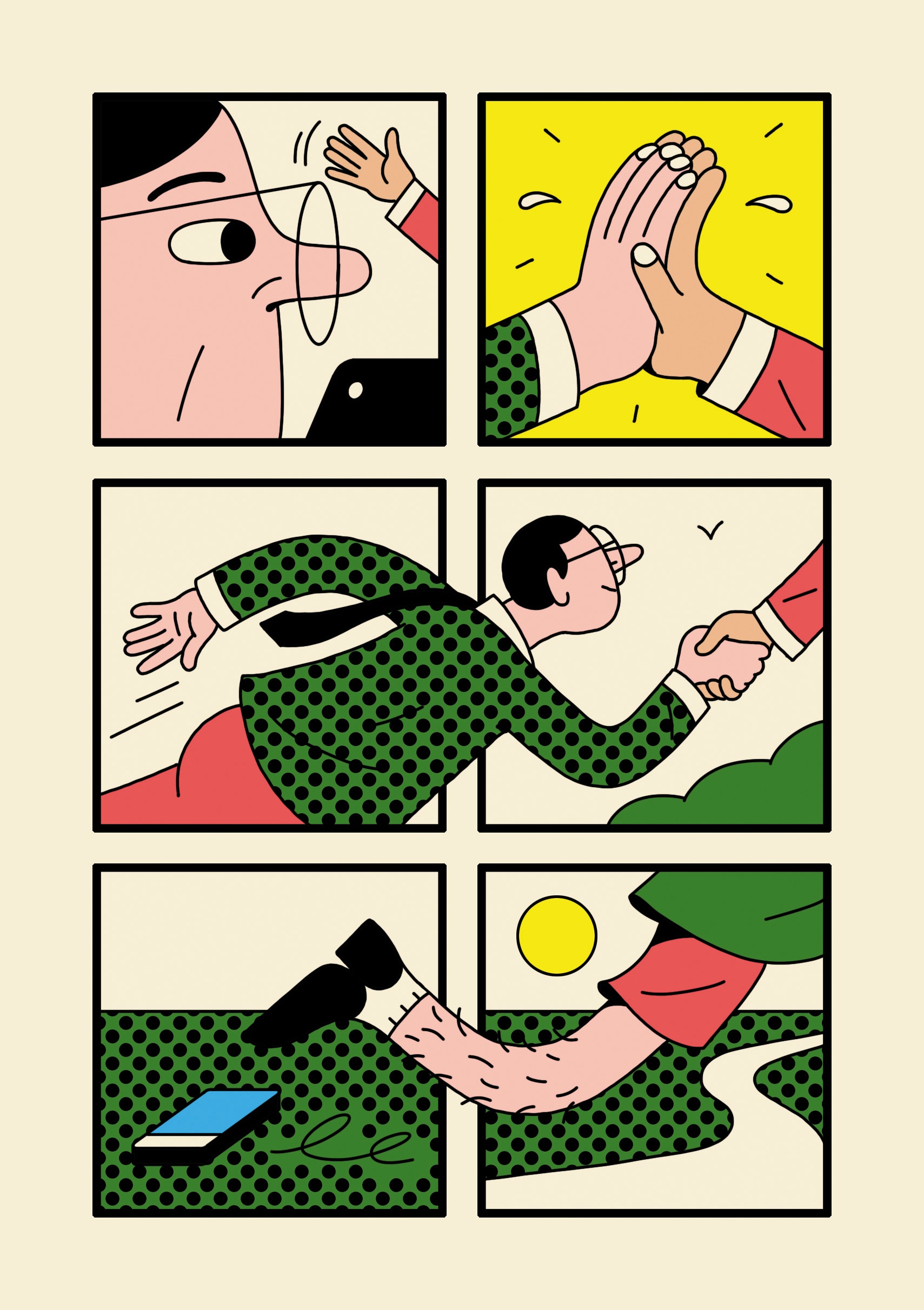
Nick Frost, best known as the co-star of Shaun of the Dead, Hot Fuzz, and The World’s End, has had a ridiculously busy year. He’s featured in seven projects in 2024, including a voice role in Disney Plus’ new series Star Wars: Skeleton Crew. But his biggest news is a 2024 horror double feature: November’s Black Cab (streaming on AMC Plus and Shudder) gives him a rare shot at a straight horror-antagonist role, while the new horror-comedy Get Away gives him both a starring role and his first solo feature screenwriting credit.
In Get Away, Frost plays genial British dad Richard, whose vacation plans take his family to a remote Swedish island. There, the bitter, xenophobic locals seem to have built their entire culture around ritualistically slaughtering British colonizers in effigy. The tone and setup recalls movies like The Wicker Man (the 1973 classic, not the memed-to-death Nic Cage remake) or Midsommar, where arrogant outsiders walk into a tight-knit, isolated community devoted to murderous traditions and ignore the danger. Get Away plays the subgenre straight at first. When Frost (who also produced) and director Steffen Haars fully reveal their intentions, though, the movie gets goofy — and very, very bloody.
In an interview ahead of Get Away’s Dec. 6 theatrical release, Frost told Polygon that the movie comes in part from his own periodic vacation trips to a remote Swedish island, where he never particularly felt welcomed by the locals. “My wife’s family are Swedish, and they had a house on a tiny island,” he says. “I’d never been around that kind of culture before, and I just loved it. I love it now. But it’s so insular. I did ask if I could shoot on the island, potentially, and one of the elders said, ‘Don’t shit where you eat.’ Which, in hindsight — the fact that they acknowledge that I do eat there, that was a big thumbs-up for me!”
This interview has been edited for clarity and concision.

Polygon: Get Away taps into a familiar horror subgenre that modern film fans may know most from Midsommar or Apostle, about entitled outsiders waltzing into places where they aren’t welcome, and falling afoul of old, bloody folk traditions. Do you have a favorite movie in that mode, or any movie that helped inspire Get Away?
Nick Frost: I mean, I love Midsommar. Of all the folk horror films I’ve seen in the last 10 years — it really affected me. I couldn’t finish it for a long time. I think it took about four or five goes for me to get through it all. It made me feel — do you remember when you were a child, and you got the flu, where you get a really high fever and you’re kind of a bit sick and demented? It made me physically feel like that. So it took me an age.
I think there’s also a vibe of Hereditary in there. That [gave me] a physical reaction too. And then obviously The Wicker Man, with Edward Woodward. [We were] trying to get the best bits of that, in terms of “Outsiders beware!” But also to make it — it is a comedy, but not to make it particularly funny, just to make the characters human enough that what happens to them is funny.
I assume it’s a coincidence of production time that Get Away and Black Cab both came out this year, but that puts you in two horror films where your performance and eventual role may really surprise people, for radically different reasons. Have you thought much about how they play as a double feature?
No, I haven’t at all. No. Look, the fact that anyone might want to sit down and watch two of my films back to back is just an honor. Even if they could watch one and then just half of the other one, and then they got a bit bored and went and had dinner, I take that. I’d accept that.

Is that a standard way of watching movies for you? Do you often watch movies in chunks and then walk away? Or is that just particularly intense horror films?
No, I watch films all the time. Every day, I would imagine, I’ll watch at least one or two films. But when I’m writing, I put Shudder on, or Amazon Prime, and I just watch horrors back to back to back. They’re on, I’m not necessarily watching them. I’d like to think I know what to do, writing horrors. But watching a lot of horrors often gives me an angle of what not to do.
Because it’s easy to look at horrors and take out the good bits and say, “I’m going to use that. We’re going to have that.” Which is fine! But to watch them as a warning in terms of “That’s not fun, let’s not have that,” or “Let’s avoid this,” that’s probably what I’m doing.
And I like to be scared! It’s not often that you — or me, personally — that you can watch a horror film and think, That actually felt pretty fucking new and creepy!
What still really scares you in a horror movie?
I love The Omen. That was one of the first, because I had parents who were kind of alcoholics, which meant I could watch what I wanted. That was the kind of quid pro quo of having parents in the pub all day, is when they came to leave the pub, I could go to the video store and buy whatever video I wanted. And so I started with Exorcist and Phantasm and Poltergeist. The Omen was one of the first, because I was brought up Catholic. So when I first watched The Omen, I felt like it was a documentary. [laughs]
That was a long, long time ago. Watching Poltergeist, too — I read lots of stuff about being possessed. There was a book that said possession usually takes children up until the age of 16. So I remember waking up on my 16th birthday and actually saying, [shouts] “Yes! I didn’t get possessed!” That was the first thing I thought about.
Hereditary really frightened me. I love that thing in horror that they do, where they hide a character in the dark and then your eyes adjust and then you see someone there. It’s really clever. What else frightens me? That Jonathan Glazer film, Under the Skin, that film really does it for me too. Once I became a father, things changed in terms of what scared me. Seeing that baby crying on that beach, and [Scarlett Johansson’s unnamed character] just walks past it. And then she goes back, and just walks past it again — it’s like, Oh my God, I can’t watch this. So anything bad that happens to children [in horror movies]. And then there are things I’m not enjoying watching at the moment, in terms of men beasting women. I mean, in terms of Black Cab, I’m like, I wish [my character] wasn’t such a horrible cunt.

Get Away seems like it probably was a lot of fun to film, but also potentially a difficult shoot — a lot of night work, a lot of prosthetics and practical effects. What stands out for you from the shoot?
Anytime I get to make a film, especially one I’ve written or I’m starring in or producing, it is all a treat. The bit where you get to make it is the good bit. The rest of it, getting it financed and finishing the writing, that’s the hard bit. But once you get on set… Hanging out in a car with the actors is always fun. You just get to have a laugh. I always like [car scenes], because you get to know everyone really, really well, which is great.
In terms of what was hard, I guess using an effects team whose first language wasn’t English. Obviously different countries do things a lot different than we do, or Steffen does in Holland. It’s just about finding a way that works for everyone that’s not overly technical, that’s not massively expensive. This is a good bit about making films — you try an effect, it doesn’t work, and then you realize the camera’s close enough that we can actually get our hands in the blood and throw it on, and it just looks great and it works well.
That’s the good bit about the filming process — you get to think on your feet, think fast and you say, “Hey, I think this will work,” or “That won’t work,” or “Let’s try this.” And getting to make a set a place where the actors feel comfortable enough to come in and say, “Hey, what about this [idea]?” I’m always quite touched that people give a shit enough to come up with a plan B. We’re always like, “A hundred percent, let’s try that.”

You’re producing movies and TV now, this is your first solo screenplay credit — is there anything left that you want to do with your career that you haven’t gotten to do yet?
I’m just about to finish the second draft on another horror, which is perhaps not as comedically based, and it’s a little more classically horrific than a slasher pic. So hopefully that will be next for me. But you can’t sit on your laurels when you write and make a film, because if no one goes and watches it, or everyone hates it, then no one’s going to give you any money to make another one. So I’m hoping people will like Get Away enough that XYZ or Shudder or IFC will say, “You know what? Let’s go again!” That would be my dream.
And hopefully they’ll like this script enough to want to make it. Because really, where I am right now is literally where I’ve always dreamed of being. I can write, I can produce, I can be in movies, I can find a bunch of young actors to come and hang out and have a laugh and do press together and go to a junket. And it’s a real honor, literally every day I get to do this. I’m grateful and amazed that anyone gives a shit, if I’m honest.
Would you ever step away from acting to become a full-time writer-producer?
I think if you’d asked me 10 years ago whether I love acting, I would’ve said no. I mean, even five years ago, I probably would’ve said no. But if I’m being honest with myself and with you, I really love it now. And I feel that spending 25 years essentially training on the job of being an actor — there’s not one film or TV show I do where I’m not finding a way to be better, or thinking, What can I take away from this? What worked? What didn’t work? What can you improve upon? And now I think I’m a lot better, and I’m a little more confident, and I enjoy it more. I think I’m good at it, and I love it.
Get Away opens in theaters on Dec. 6.
Source:https://www.polygon.com/horror/491279/nick-frost-interview-get-away-black-cab-midsommar
